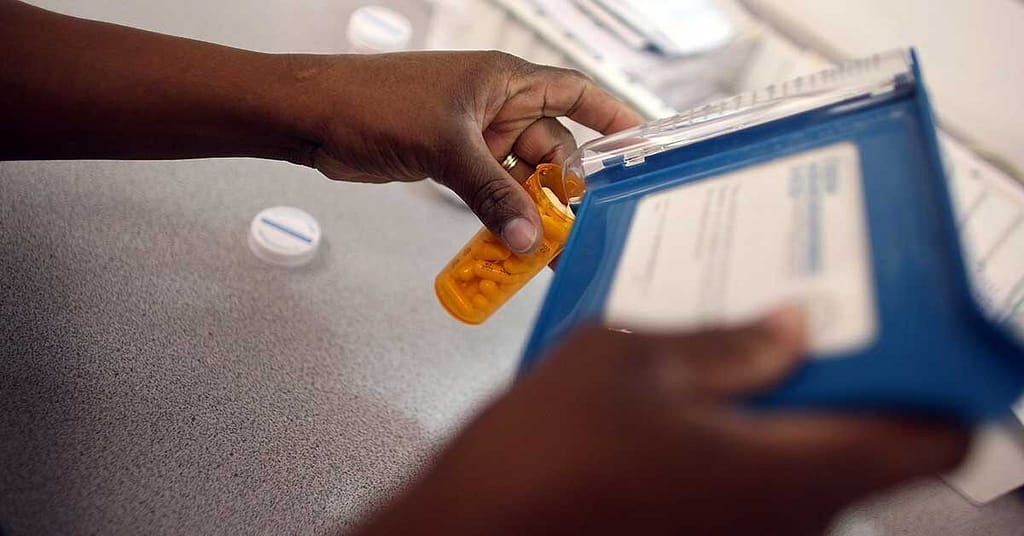Several high blood pressure drugs were recalled due to an “unexpected” impurity.
Editor’s note: This story on the recall of certain blood pressure medications has been updated numerous times since it was first published on July 24, 2018. Healthline will continue to update this article whenever there’s new information on the ongoing recall.
Another pharmaceutical company is voluntarily recalling its blood pressure medication — the latest development in a long list of recalls that began more than 3 years ago.
On Thursday, officials at Lupin Pharmaceuticals said they were recalling 5 batches of their Irbesartan and Irbesartan and Hydrochlorothiazide tablets.
Company officials said an impurity suspected of being a cancer-causing agent had been found in the finished manufactured version of the tablets.
The company noted they have received no reports of serious illness but were issuing the recall out of an abundance of caution.
It’s been more than 2 years since a pharmaceutical company has issued a blood pressure medication recall due to the concerns over potential cancer-causing ingredients.
In September 2019, Torrent Pharmaceuticals announced it was expanding its recall to an additional 3 lots of Losartan Potassium Tablets USP and 2 lots of Losartan Potassium/Hydrochlorothiazide Tablets, USP.
Dozens of blood pressure medications have been recalled since the first products were pulled off the shelf in July 2018 due to impurities.
The affected products all contained valsartan, losartan, or irbesartan. These belong to a class of drugs known as angiotensin II receptor blockers (ARBs), which are used to treat high blood pressure and heart failure.
Below is a condensed version of the previous list of recalled ARB medications maintained by the Food and Drug Administration (FDA).
The FDA list includes dose, lot number, and expiration date for the products.
The recalled products contained N-Nitrosodimethylamine (NDMA), N-Nitrosodiethylamine (NDEA), or N-Nitroso-N-methyl-4-aminobutyric acid (NMBA) above levels deemed safe by the FDA.
NDMA and NDEA are “probable human carcinogens” and NMBA is a “potential human carcinogen,” according to the FDA.
In addition, the online pharmacy Valisure filed a petition in June with the FDA, saying it found the chemical dimethylformamide (DMF) in certain valsartan products.
The World Health Organization listed DMF as a probable carcinogen last year.
A FDA official told CBS News that the agency will investigate Valisure’s claim.
According to the U.S. Environmental Protection Agency (EPA), NDMA forms during both industrial and natural processes.
It was formerly used in the production of liquid rocket fuel, antioxidants, and lubricant additives.
The FDAs investigation has found that these impurities can occur in medications as a result of certain chemicals and conditions during the manufacturing process. They may also be caused when appropriate manufacturing processes aren’t followed.
Dr. Victoria Shin, a cardiologist with Torrance Memorial Medical Center in California, emphasized that the recalls aren’t due to a problem with valsartan.
“It’s a contaminant that was included in the manufacturing process that’s the problem,” said Shin. “Patients shouldn’t lose faith in the drug itself.”
She added that she doesn’t expect the recalls to affect patient care because of the availability of other ARBs.
Since the recall started last July, multiple companies have voluntarily recalled their medications, including valsartan from Major Pharmaceuticals, Solco Healthcare, and Teva Pharmaceuticals Industries Ltd., as well as valsartan/hydrochlorothiazide from Solco and Teva.
Currently, the recall affects only medications containing valsartan, losartan, or irbesartan. However, not all lots of these medications are affected and being recalled.
To see if your medication has been affected, check the FDA’s list of recalled products.
The agency also has a list of all ARBs, with testing results for nitrosamine impurities.
The FDA continues to test samples of other ARBs and will work with manufacturers to remove affected products from the market. It also regularly posts updates on its investigation of these products.
Recalls have also been recently issued for ranitidine, a medication used to prevent and treat heartburn, ulcers, and gastroesophageal reflux disease (GERD). Affected products, which include brand-name Zantac, contain small amounts of NDMA.
The long-term cancer risks of the impurities found in the recalled products is unknown.
However, in November the FDA estimated that if 8,000 people took the highest dose of valsartan from a recalled batch containing NDMA every day for 4 years, one additional case of cancer would occur over the lifetimes of those people.
Recently, the FDA updated its warning, saying “the actual risk to patients is likely much lower than our estimates.”
Most people would be exposed to much less NDMA than this “worst-case scenario,” the agency said.
People who are taking an ARB containing valsartan, losartan, or irbesartan can search the FDA’s list of recalled ARB products to see if their medication is affected.
Recalled medications can be identified by checking the product name, manufacturer details, and batch or lot number on the bottle or packaging.
If in doubt, you should check with your doctor or the pharmacy where you filled your prescription.
These medications are used to treat serious medical conditions — high blood pressure and heart failure.
So “patients should not stop their medication on their own without consulting a physician,” said Shin. “This can cause elevated and uncontrolled blood pressure which can potentially have severe health consequences.”
A doctor or pharmacist can help patients find an alternative medication. This may be another valsartan product or another type of ARB.
Patients should monitor their blood pressure closely after switching medicines. People may respond differently to the new medication. The dose may also need to be adjusted under the guidance of a healthcare provider.
Unused medication affected by the recall can be returned to a pharmacist for proper disposal.
Our experts continually monitor the health and wellness space, and we update our articles when new information becomes available.
Current Version
Sep 27, 2019
Written By
Shawn Radcliffe
Edited By
David Mills
Share this article
OUR BRANDS
Blood Pressure Medications Recall Latest – Healthline
